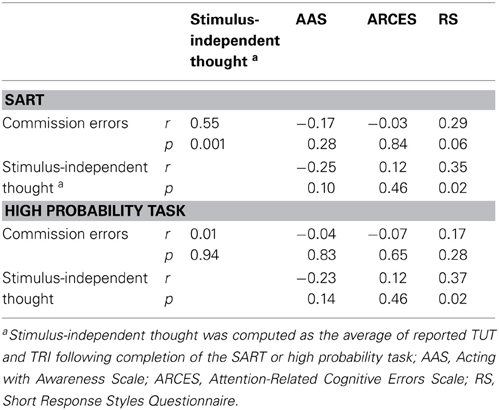This study examined relationships between working memory and subjective states on four successive occasions. Participants ( n=112) performed a task requiring concurrent mental arithmetic and ordered recall of single words under increasing levels of time pressure.
Subjective state was measured with the Dundee Stress State Questionnaire (Matthews et al., 2002), before and after performance on each occasion. Findings suggested reciprocal influences of state and working memory. Performance elicited state changes including increased task engagement and distress. However, state-change patterns themselves changed across days of testing, suggesting progressive adaptation to the task environment. State dimensions including lower distress and higher task engagement correlated with working memory. Structural equation modelling suggested a stable influence of states on performance across days.
The dynamic interdependence of states and performance is discussed in relation to the transactional model of stress and emotion.
Stress is an important aspect of operational settings. This article presents two studies providing initial psychometric and validation evidence of a short multidimensional self-report measure of stress state, the Short Stress State Questionnaire (SSSQ) based on the Dundee Stress State Questionnaire (DSSQ; Matthews et al., 1999, 2002). The first study involved the construction and exploration of the factor structure of the SSSQ using data pooled from three samples.

These factor analyses differentiated three aspects of subjective stress similar to the DSSQ: Task Engagement, Distress, and Worry. The second study aimed at providing validity information on the SSSQ in regards to its sensitivity to task-stressors. Different task conditions elicited unique patterns of stress state on the three factors of the SSSQ in line with predictions.
The 24-item SSSQ appears to be a useful measure of stress state based on the substantially longer DSSQ from which it was derived. Classification of personality traits. Journal of Personality and Social Psychology, 52, 432– 444., Grier, R. S., Dember, W.
N., Matthews, G., Galinsky, T. L., Szalma, J. L., Parasuraman, R.
The vigilance decrement reflects limitations in effortful attention not mindlessness. Human Factors. S., Dember, W. N., Warms, J. S., Matthews, G. Optimism, pessimism, and false failure feedback: Effects on vigilance performance. Current Psychology, 18, 311– 325., Helton, W.
S., Hollander, T. S., Matthews, G., Dember, W. N., Parasuraman, R.
( 2003) Challenges to the mindlessness model of vigilance through signal regularity. Proceedings of the Human Factors and Ergonomics Society, 47, 1663– 1667., Helton, W. S., Mathews, G., Corcoran, K., Dember, W. ( 2002) Further tests of the abbreviated vigil: Effects of signal salience and noise on performance and stress.
Proceedings of the Human Factors and Ergonomics Society, 46, 1546– 1550., Hilgard, E. The trilogy of the mind: Cognition, affection, and conation.

Dundee Stress State Questionnaire Download
Journal of the History of the Behavioral Sciences, 16, 107– 117., Matthews, G., Campbell, S. E., Falconer, S., Joyner, L. A., Huggins, J., Gilliand, K., Grier, R., Warm, J. Fundamental dimensions of subjective state in performance settings: Task engagement, distress, and worry.
Emotion, 2, 315– 340., Matthews, G., Joyner, L., Gilliland, K., Huggins, J., Falconer, S. Validation of a comprehensive stress state questionnaire: Towards a state big three? In Merville, I., Deary, I. J., DeFruyt, F., Ostendorf, F.
(Eds.), Personality psychology in Europe (vol. Tilburg: Tilburg University Press. Structural divisions of personality and the classification of traits. Review of General Psychology, 7, 381– 401., Mayer, J. D., Chabot, H. F., Carlsmith, K.
Conation, affect, and cognition in personality. In Matthews, G. (Ed.), Cognitive science perspectives on personality and emotion (pp. Amsterdam: Elsevier Science., Szalma, J. S., Matthews, G., Dember, W. N., Wiler, E.
M., Meier, A., Eggemier (in press). Effects of sensory modality and task duration on performance, workload, and stress in sustained attention. Human Factors.
S., Dember, W. N., Jones, K.
Dundee Stress State Questionnaire Dssq
S., LaGrange, C. M., Matthews, G. ( 2000) The effects of signal salience and caffeine on performance, workload and stress in an abbreviated vigilance task. Human Factors, 42, 183– 194.